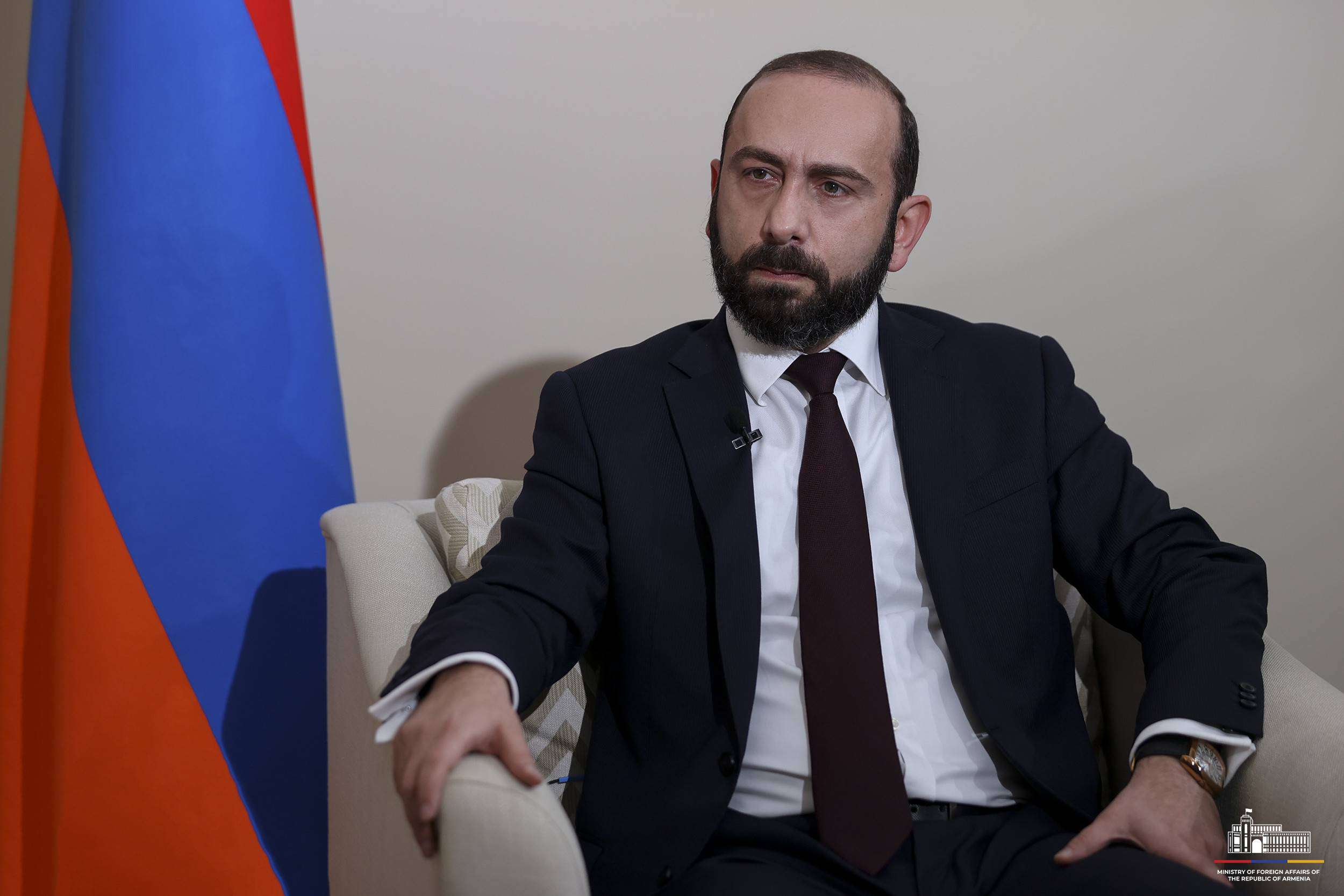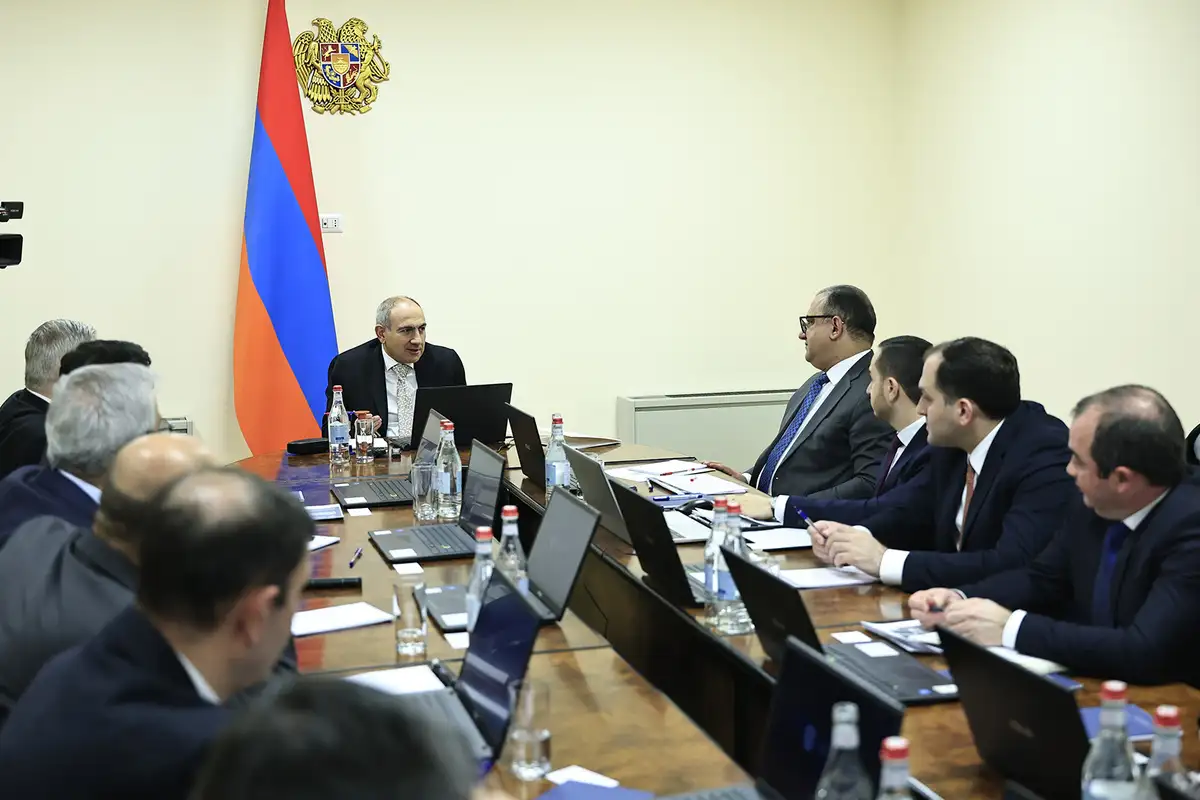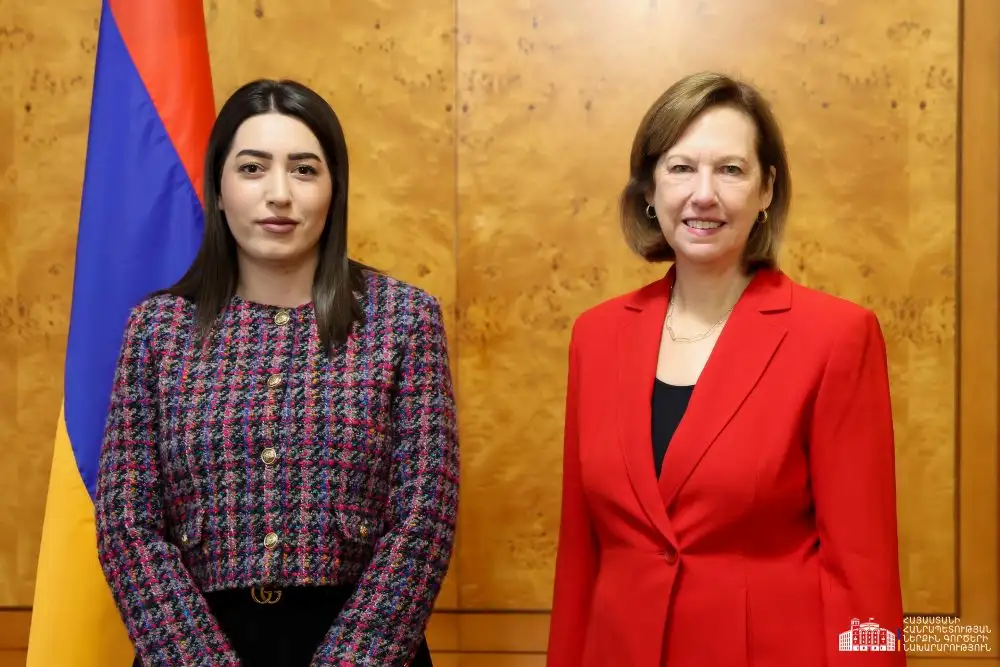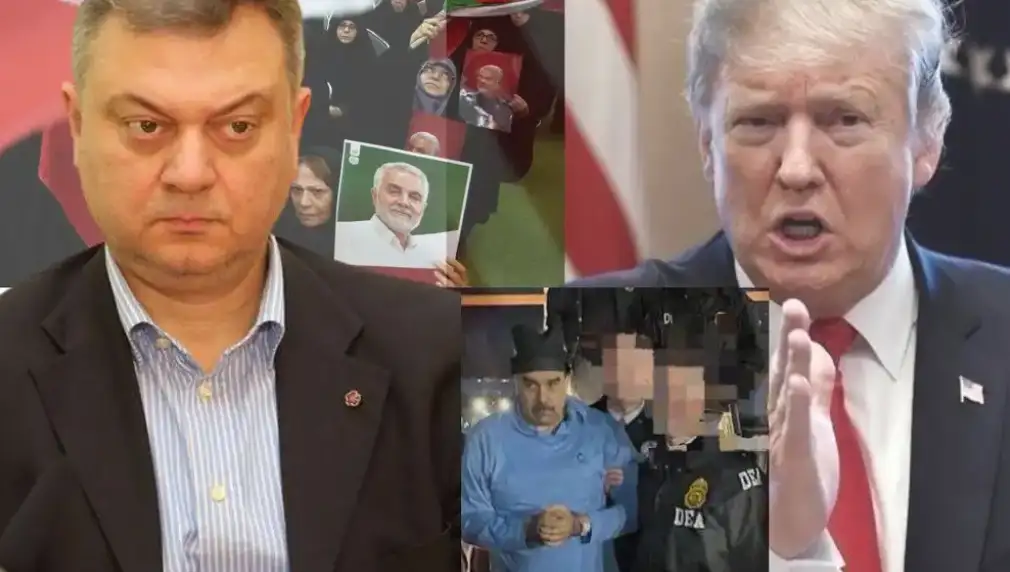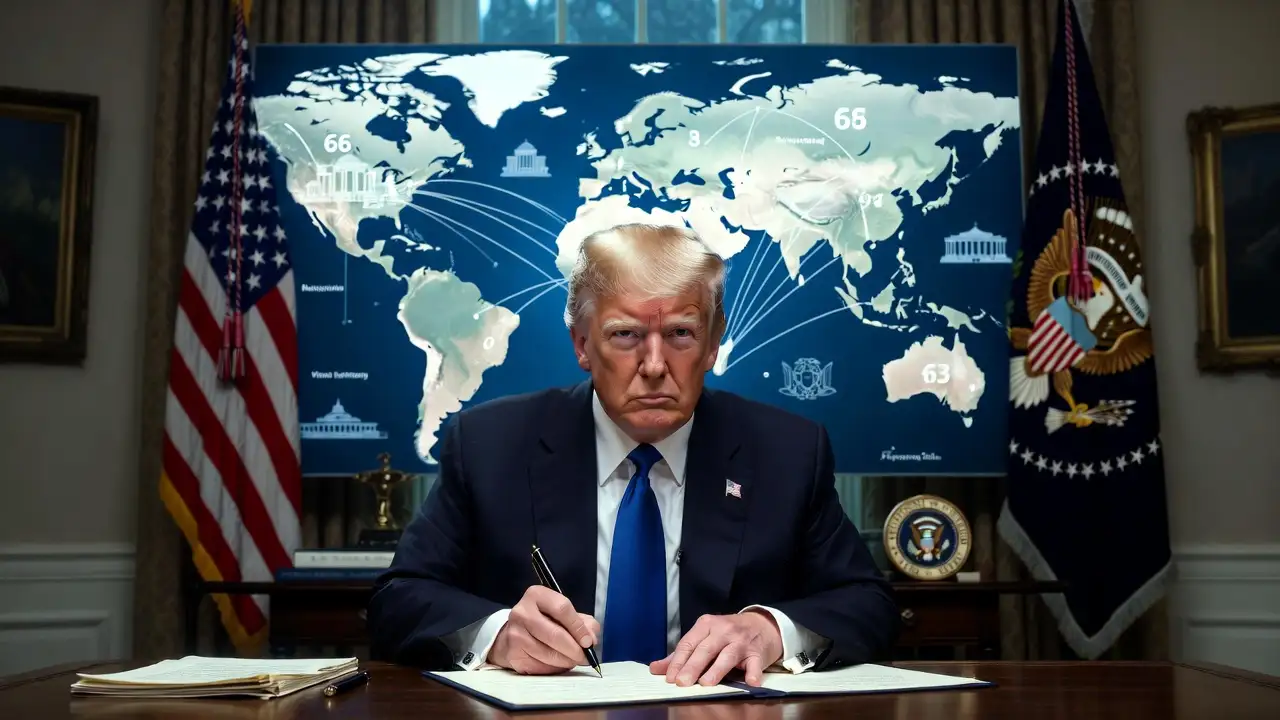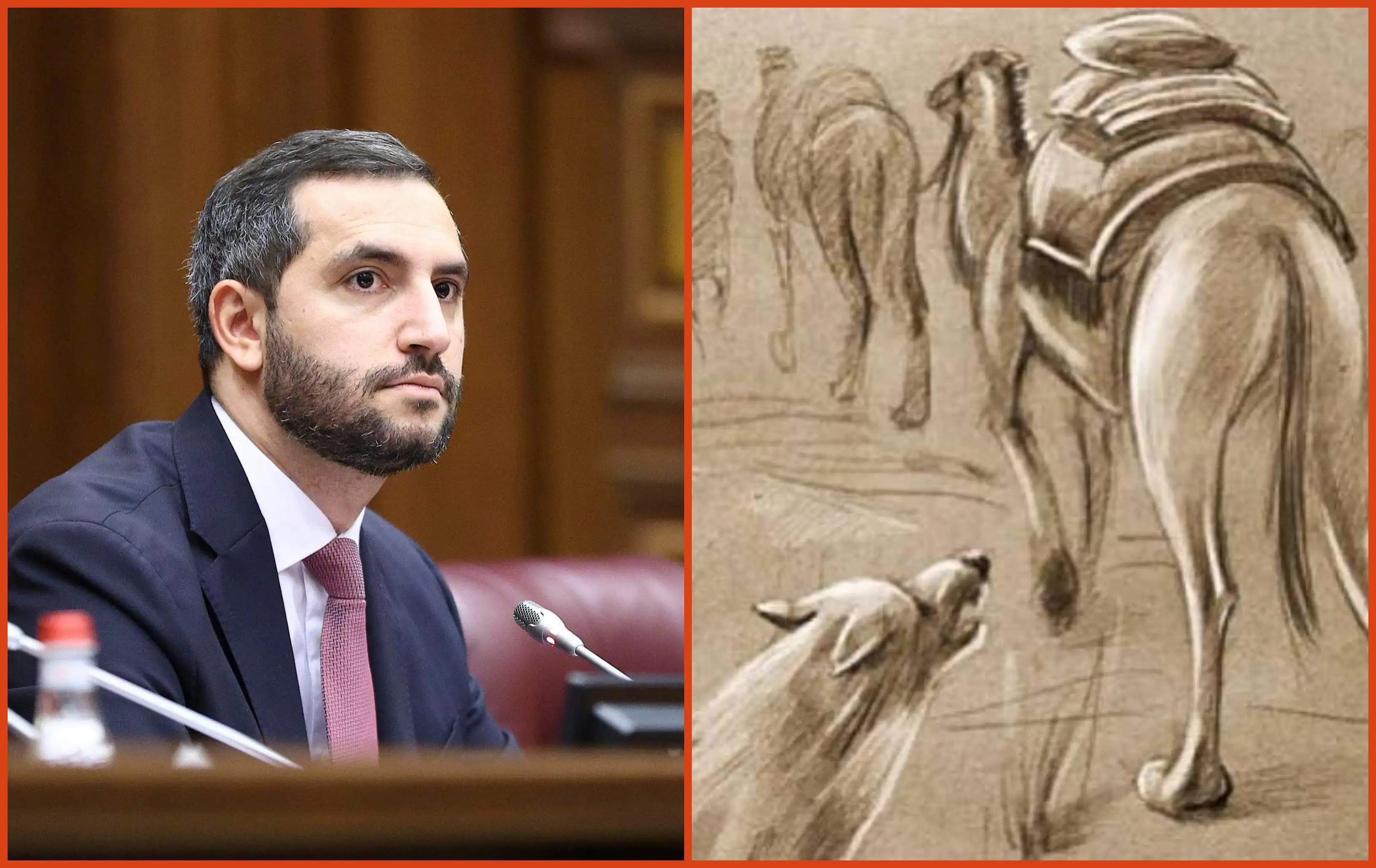RA Foreign Minister Ararat Mirzoyan gave an interview to the Turkish TV channel "TRT World" within the framework of participation in the Antalya Diplomatic Forum. Reference was made to several RA foreign policy issues, including relations with the USA and the EU, the security situation in the South Caucasus, the process of regulating Armenian-Turkish relations, and critical issues in the negotiation process between Armenia and Azerbaijan.
Question: Looking at the South Caucasus, we see that the region is going through a period of transformation; the countries of the post-Soviet area are going through geopolitical changes. Looking at Armenia, especially in the last few years, we see that it has expanded its network of allies, moving from traditional allies to new allies. As the RA foreign policy department, what path do you want to take in your country?
Answer: Indeed, the region, including Armenia, is undergoing severe transformations. It is also an internal process for us. The people of Armenia have chosen a democratic way of building public life. We have repeatedly proven this choice through elections and by developing democratic institutions. And along the way, we see that the European Union and the USA greatly support our democratic reforms and institutional changes. In general, it is essential to diversify as much as possible and expand the circle of partners and allies. So, this is how we are moving forward, significantly deepening our relations with the EU and the USA while maintaining traditional ties or, for example, looking to the East. You know, we are building an entirely new quality relationship with India. Of course, I also emphasize our priority: to regulate and, first of all, to develop relations with our neighbors. This is a short description of our foreign policy.
Question: You talked about the EU. The EU is expanding. Have you ever thought about joining the EU? Is it possible in the near or distant future? Or maybe Armenia is interested in NATO membership as part of its foreign policy towards the West.
Answer: Considering all the challenges we have faced in the last 3-4 years, new opportunities are being actively discussed in Armenia. I will not reveal a secret if I say that the idea of joining the EU is also on that list. The people of Armenia have European aspirations, and as I said, we are going through the process and will see what the end of the process will be, of which, at the moment, no one can be sure or predict.
Question: How would you assess the current stage of relations with the two Western countries, the USA and France, and how do they support you on your way?
Answer: We have new opportunities for cooperation with France and the USA. We have a strategic dialogue with the USA, in which we explore new directions. I can say the same about the European Union. We have the Comprehensive and Extended Partnership Agreement with the EU, but we are looking beyond this agreement. We are discussing visa liberalization and new mechanisms to use in our relationships. For the first time in history, the European Union was involved in the security issues of our region. You know that the EU monitoring mission is stationed in Armenia, which monitors the border between Armenia and Azerbaijan. It is also important to note that since the deployment of the mission, tensions on the border have decreased, and we see that the mission has contributed to stability. Thus, we include new directions and areas in our partnership; awe is still halfway through the process.
Question: We are now in Antalya, within the framework of the diplomatic forum, and looking at the relations with Turkey over the last year, especially during the earthquake, we see Armenia's support to Turkey, the opening of the bridge on the border, which was closed for a very long time. The RA Prime Minister arrived at the inauguration ceremony of the President of Turkey. This has become a new impetus for regulating relations between the two countries. How do you see the settlement process at the moment? What needs to be added that needs to be taken to the next step?
Answer: Speaking about the earthquake and Armenia's response and support, I would like to separate this from the context of the settlement process. Settlement is a political process, and when we talk about the earthquake, the loss of human life, the tragedy, and the family members of the victims, these are different values, a situation in which completely different feelings guide us. We provided support from the bottom of our hearts because, you know, we saw the disaster of the devastating earthquake in the north of Armenia. At that time, part of the support reached Armenia through the border with Turkey, so this time, the border was also opened for the rescuers and humanitarians we sent for support. As for the settlement process, we appointed special representatives who had active discussions; there were meetings at the ministerial level and conversations between RA Prime Minister Nikol Pashinyan and Turkish President Recep Tayyip Erdogan. Many things have been done, many things are being discussed, and we have reached an agreement on some issues. Still, they need to be implemented, for example, the opening of the border for citizens of third countries and citizens of Armenia and Turkey with diplomatic passports. This has been agreed upon but has yet to be implemented. We hope that it will happen soon. We have also decided on other confidence-building measures, such as restoring the historical bridge of Ani. We are going through this process, but it is also time to see tangible results on the ground.
Question: In general, the economy plays a very important role in the regulation process and, as you mentioned, building trust. How do you see the trade between Armenia and Turkey?
Answer: Of course, there is a direct correlation between the opening of the border between Armenia and Turkey and the development of trade relations. One can debate which will affect the other more, but business relations will develop independently if we open the border. I think we have leadership and political will from both sides, and if we take the final steps and open the border, economic ties will develop and find their way.
Question: Let's also talk about Azerbaijan. You have had meetings in the last few months, we can say years. How do you assess the prospects of peace, real peace, a complete settlement, not a ceasefire? Understandably, this still implies a long way to go, but what stage have you reached on the diplomatic front?
Answer: Indeed, we are not discussing a ceasefire with Azerbaijan but a process of achieving peace. We are negotiating the draft peace agreement and other discussion platforms. Meetings were held at the level of the country's leaders, and negotiations were held between the ministers of foreign affairs. We have managed to agree on many things, but there are fundamental, critical issues on which the parties' positions still need to be moved from each other. I want to mention some of the most important ones.
First is ensuring territorial integrity, border recognition, and further demarcation processes. In 1991, the two countries signed and ratified a document recognizing each other's territorial integrity and borders. It is the declaration of Alma-Ata. Without going into too much detail, it is the document by which the twelve republics of the USSR accepted that, firstly, the USSR ceased to exist. Secondly, the administrative borders between them were recognized as interstate, international borders. Armenia and Azerbaijan were among those republics. During the last round of negotiations, the two countries' leaders reaffirmed their commitment to the Alma-Ata Declaration and its principles, particularly in 2022 in Prague, then in Sochi, Brussels, and on other occasions. Therefore, the two countries reaffirmed that they recognized each other's territorial integrity and agreed to carry out further distinction based on the Alma-Ata Declaration, the 1991 borderline. However, now that we want to refer to the Alma-Ata declaration in the peace treaty, stating what I described a moment ago, nothing more, we see reluctance on the part of Azerbaijan to sign such a document; they remove that link, that part from the text. At least this raises questions among RA diplomats because there are doubts that after the crimes that took place in our region, and the forced deportation of Armenians from Nagorno-Karabakh, their homeland, Azerbaijan may have further plans to continue its ambitions for the sovereign territory of Armenia. To avoid such a scenario or misunderstanding, if it is a misunderstanding, Azerbaijan can sign under the text I mentioned and ratify it.
Question: Many platforms tried to bring Armenia and Azerbaijan to the same table. Georgia, Russia, and Europe wanted to do it. I understand that the two countries have been hostile for a long time, so it would be naive or too optimistic to think that diplomacy can immediately contribute to eliminating hostility and having constructive discussions. Nevertheless, which platforms do you consider the most comfortable for constructive discussions?
Answer: Short answer: on all platforms. The only problem, in my personal opinion, is the lack of political will on the other side to conclude the peace agreement.
Question: Have you discussed relations between Azerbaijan and Turkey? Has Turkey ever tried to mediate or at least unite the parties on some issues?
Answer: Yes, we have seen several such attempts. The response has been that for mediation efforts, and this is not just for Turkey but for all the other actors, we need to see that the positions and intentions of the potential mediator are completely balanced and completely neutral. The perception is that the positions of Azerbaijan and Turkey are identical, which usually does not create an environment for mediation. Nevertheless, we have presented our perceptions, and a constructive discussion is also taking place on this issue.
Question: One more question about trade corridors. We see what changes are happening with international roads. Trade routes are being rearranged, and the Middle Corridor is now essential, aimed at connecting China to European markets; there is talk of the India-Middle East Middle Corridor, the development road connecting Iraq and Turkey to European markets, the "world gateway" in the EU, the US "rebuilding better," and in China, about the "One Guti, One Road" programs. What is your view on the corridors connecting Armenia and Azerbaijan to that broader network?
Answer: Understandably, Armenia is interested in and ready to become a part of new international logistics and transit routes. To constructively expand the discussion on this topic, for tangible results, as well as to present our intentions and preparedness in the best way, we have developed the "Crossroads of Peace" project, which, if implemented, will bring economic advantages to all countries of the region and beyond, not only economically, but also politically. If implemented, it can become a significant factor contributing to peace in the area because trade and interconnection bring specific stability and peace. This is our intention. We continue to present this initiative to all our potential partners. The idea behind it is that goods and people from Azerbaijan can cross the RA border and enter the territory of Nakhichevan, and the same should apply to RA citizens. Four necessary conditions will allow the process to be carried out correctly. The infrastructures that have been under blockade for several decades should be unblocked under the sovereignty of the countries through whose territory they pass; they should operate under the national jurisdiction of the parties and on the principles of equality and reciprocity. These principles are very natural; everyone in the world will agree, and we hear from Azerbaijan that they respect these principles; they have no intention to violate the sovereignty of Armenia, but at the same time, they propose that the forces of a third country be deployed, for example, along the railway that will pass through Armenia. Their expectation is also that the citizens of Azerbaijan will pass through the territory of the Republic of Armenia without going through border inspection procedures and customs control. RA can ensure the safety of passengers passing through its territory, we can facilitate procedures, and modern, innovative technologies can be helpful in this matter. Still, no one can enter or leave our country without proper registration.
Question: I would also like to ask about international developments that affect the international world order. There is a war going on in Ukraine and Gaza; a case is being investigated at the International Court of Justice. The outbreak of new conflicts is possible, while the existing conflicts, be they Syria or Libya, are still not fully resolved. In discussions with your colleagues at the UN, do you address why this system, formed after the World War, has not been able to settle any of these conflicts?
Answer: I can't say for sure why, but I can say that indeed, most of our colleagues, virtually everyone in the world, recognize that the deterioration of the international world order has led to several problems, and now is the time for the political mind to also make a more just, sustainable effort. And build a sustainable world order based on international law to save human values and lives. These are not general words for us; we face this in our region. I have already mentioned the forced displacement of the entire Armenian population from Nagorno Karabakh, the invasions of our sovereign territory, and the conflicts that we have been going through for decades, and now we are trying to find solutions to the problems. We see that we are not alone in this matter. Additional efforts should be made at the global level to find solutions, which, unfortunately, have not yet been found.
Question: What would you like to change in the UN Security Council or other mechanisms of the UN system to create a fairer system? The UN will be called the center of conflict settlement and peace. How do you see it being transformed to serve that purpose? What is the missing ingredient?
Answer: The missing ingredient is the coercive implementation of resolutions and decisions, including those of the International Court of Justice. In our case, too, resolutions and court decisions have been adopted, but we do not see their implementation on the ground. The international legal system does not function properly, and the missing component is perhaps the exact enforcement and implementation.




